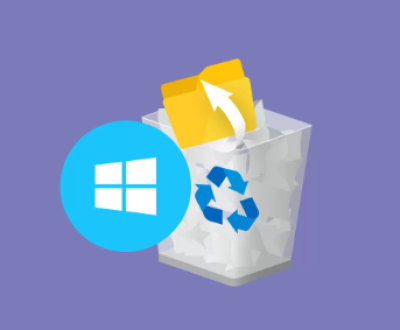Becoming a data recovery specialist is an intricate yet rewarding journey. It requires a blend of technical skills, problem-solving abilities, and a thorough understanding of various storage technologies.
1. Data Recovery
Data recovery specialists are responsible for retrieving data from damaged, corrupted, or otherwise inaccessible storage devices such as hard drives, SSDs, memory cards, and mobile phones. This may involve software-based techniques, but in some cases, physical repair of the storage device is necessary.
The field of data recovery encompasses:
Logical recovery: This involves restoring files that were accidentally deleted or lost due to system crashes or file system corruption.
Physical recovery: This involves retrieving data from damaged or malfunctioning storage devices.
Both types of recovery require a deep understanding of file systems, storage technologies, and the underlying hardware that powers these devices.

2. Educational Requirements
Though there is no single path to becoming a data recovery specialist, most successful professionals have formal education in a related field.
Degrees to Consider
Computer Science (CS): This is the most common degree for data recovery professionals. CS programs teach foundational skills such as programming, algorithms, and data structures, which are crucial for understanding how data is stored and retrieved.
Information Technology (IT): An IT degree focuses more on practical applications and systems management, which is also essential in understanding how data systems work.
Cybersecurity: Given that some data recovery involves recovering data from compromised or hacked systems, a background in cybersecurity is useful.
Electrical Engineering: For those interested in the hardware aspects of recovery, a degree in electrical or computer engineering can help with understanding storage device components at the physical level.
3. Technical Skills to Develop
Data recovery specialists must master a range of technical skills. The following list outlines the most important competencies:
3.1 File Systems and Storage Technologies
A thorough understanding of file systems is crucial for logical data recovery. This includes knowledge of:
NTFS, FAT32. exFAT (Windows)
HFS+, APFS (macOS)
EXT, Btrfs, XFS (Linux)
ReFS, ZFS (advanced file systems)
Each file system has its unique structure and method for organizing data. Familiarity with these systems allows you to understand where data is stored, how it is organized, and how it can be retrieved when it becomes corrupted or lost.
3.2 Operating Systems
Data recovery professionals need to be proficient in various operating systems:
Windows: Most common for home and business users. Familiarity with recovery tools and procedures for this OS is essential.
macOS: Used heavily by creative professionals. Knowing how to handle APFS or HFS+ file systems is crucial.
Linux: Used in many server environments and power users’ setups. Recovery on Linux involves using open-source tools and understanding different file systems.
Mobile Operating Systems: As data recovery increasingly involves mobile devices, understanding iOS and Android file systems is becoming more important.
3.3 Data Recovery Tools
There are several tools available for data recovery. Some tools are open-source, while others are proprietary. Gaining proficiency in these tools will help you become a more effective specialist:
Software-based recovery tools: Tools like R-Studio, EaseUS, Recuva, and TestDisk can help recover logically damaged files.
Hardware-based recovery tools: For physically damaged drives, tools like PC-3000 can help rebuild damaged storage media.
3.4 Networking and RAID Systems
In some cases, data recovery specialists are tasked with recovering data from networked environments or RAID (Redundant Array of Independent Disks) systems. This requires an understanding of:
RAID levels: RAID 0. RAID 1. RAID 5. etc.
Network-attached storage (NAS) and storage area networks (SAN): These are frequently used in enterprise environments.
Scripting and Automation: Familiarity with scripting languages like Python or Bash helps automate repetitive recovery tasks.
3.5 Hardware Repair
Sometimes, a storage device is physically damaged, and data recovery will require repairing the device itself before the data can be accessed. This can involve:
Replacing damaged read/write heads
Repairing or replacing faulty circuit boards
Dealing with issues like stuck spindles or burnt-out motors
4. Certifications
To strengthen your credibility as a data recovery professional, you can pursue industry-recognized certifications.
4.1 CompTIA A+
This certification provides foundational knowledge about computer hardware and software, including troubleshooting and repairing issues. It’s a good start for those interested in hardware-based recovery.
4.2 Certified Data Recovery Professional (CDRP)
Offered by the International Society of Forensic Computer Examiners (ISFCE), this certification focuses specifically on data recovery techniques. It covers both logical and physical recovery, making it highly relevant to this career path.
4.3 CompTIA Security+
This certification helps you understand data security principles and practices. While more focused on cybersecurity, it’s beneficial for data recovery specialists who may deal with compromised systems.
4.4 Certified Computer Examiner (CCE)
This certification is for those interested in forensic data recovery, particularly in legal or investigative contexts.
5. Hands-on Training
Data recovery is a highly practical field. While theoretical knowledge is essential, hands-on experience is equally important. You’ll need to work with different kinds of storage devices and scenarios to hone your skills.
Internships
Look for internships with data recovery companies. This will give you real-world exposure to the challenges of the job, including working with damaged media, dealing with corrupted file systems, and using specialized recovery tools.
Personal Projects
Experiment with your personal computers and storage devices. Intentionally corrupt or delete data and practice recovering it using various tools and techniques. You can also experiment with dismantling hard drives and learning the hardware components involved.
Workshops and Bootcamps
Many organizations offer workshops or boot camps where you can learn data recovery skills in a hands-on environment. These are often more focused than degree programs and allow for quicker immersion into the practical aspects of data recovery.
6. Getting Into the Industry
Once you have the necessary education, skills, and certifications, it’s time to enter the workforce.
6.1 Entry-Level Jobs
Start by looking for entry-level positions that provide exposure to data recovery tasks. These may include:
IT support roles
Systems administration
Junior data recovery technician
Many data recovery specialists begin their careers in general IT or systems administration roles before specializing.
6.2 Joining a Data Recovery Firm
You can apply to work directly with a data recovery firm. These companies often provide specialized training and equipment that you wouldn’t have access to in other IT roles. You’ll likely start in an assistant or junior role, but you’ll gain invaluable experience by working alongside seasoned professionals.
6.3 Freelance or Starting Your Own Business
Once you’ve gained experience, you can consider freelancing or starting your own data recovery business. Data recovery is a niche field, but businesses and individuals alike require these services, especially with the increasing use of digital storage across all industries.
If you opt for freelancing or starting a business, make sure to:
Invest in specialized tools and equipment: Data recovery hardware can be expensive, but it’s crucial for tackling complex physical failures.
Build a strong portfolio: Document your successes and maintain testimonials from satisfied clients to establish your reputation.
Market your services: Set up a professional website, use social media, and network within the tech community.
7. Keeping Up with Technology
Data recovery is a constantly evolving field, so staying up-to-date with the latest developments is essential. New types of storage media, encryption methods, and file systems are constantly emerging, and you’ll need to adapt your skills accordingly.
Continuous Learning
Attend conferences like DEF CON and Black Hat, where security professionals often discuss cutting-edge recovery techniques.
Join online communities and forums such as the Data Recovery Forum and Reddit’s data recovery section to stay informed about the latest tools and technologies.
Take advanced courses: Institutions like Udemy, Coursera, and Cybrary offer courses in data recovery and related fields.
Networking
Connect with professionals in the industry. Join professional groups, attend meetups, and participate in webinars and seminars to exchange knowledge and stay current with trends in the industry.
8. Ethics and Legal Considerations
Data recovery specialists often handle sensitive information. As a result, you need to adhere to a strict ethical code to protect the privacy of your clients. Some key considerations include:
Client confidentiality: Never disclose or misuse the data you recover.
Compliance with laws: Be familiar with data protection laws, such as GDPR in Europe and HIPAA in the U.S.
Chain of custody: When recovering data for legal cases, ensure that you maintain a strict chain of custody to avoid tampering.
About us and this blog
Panda Assistant is built on the latest data recovery algorithms, ensuring that no file is too damaged, too lost, or too corrupted to be recovered.
Request a free quote
We believe that data recovery shouldn’t be a daunting task. That’s why we’ve designed Panda Assistant to be as easy to use as it is powerful. With a few clicks, you can initiate a scan, preview recoverable files, and restore your data all within a matter of minutes.

 Try lt Free
Try lt Free Recovery success rate of up to
Recovery success rate of up to









